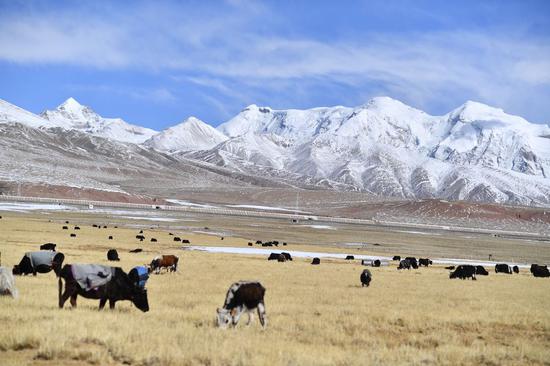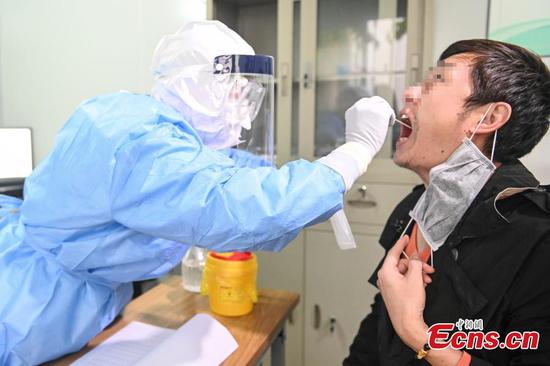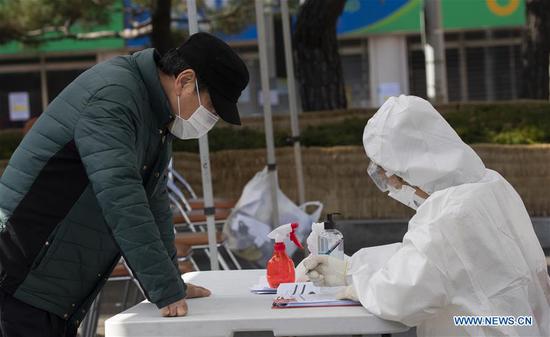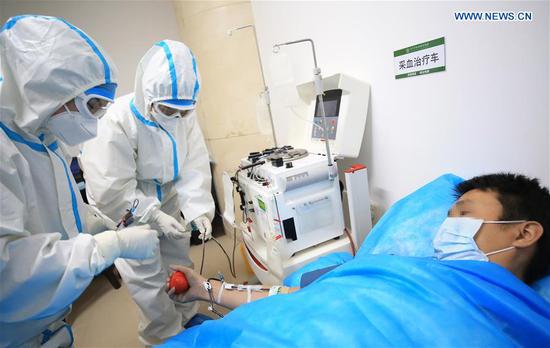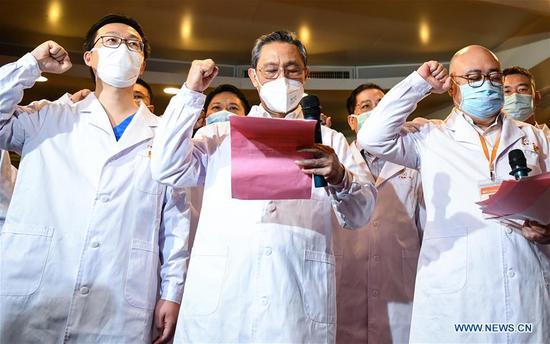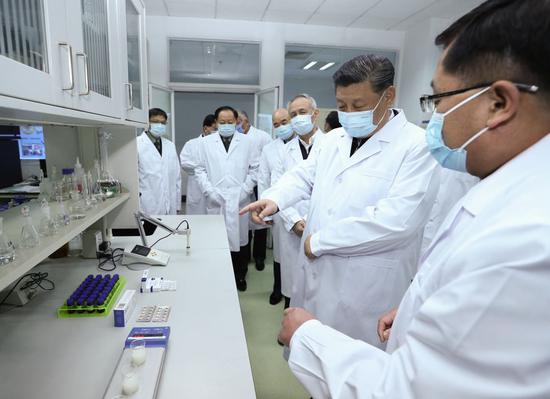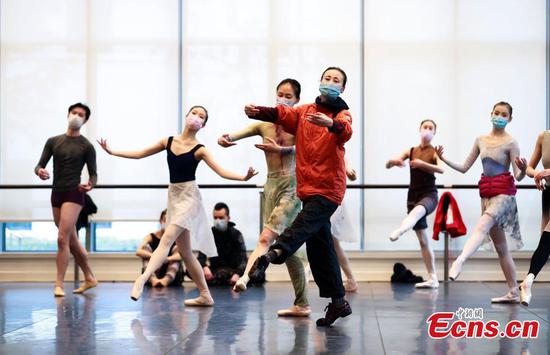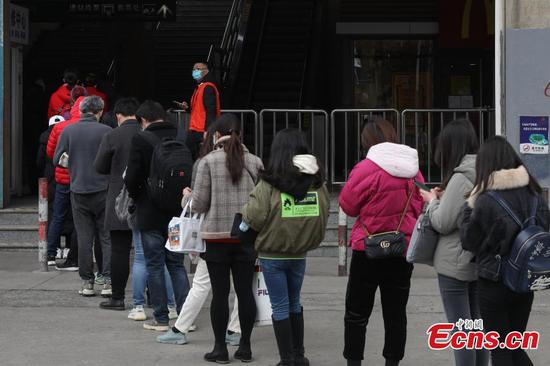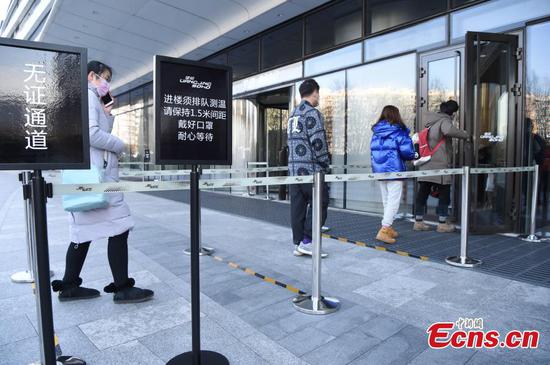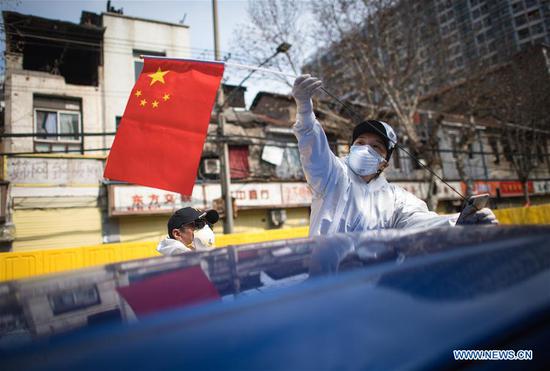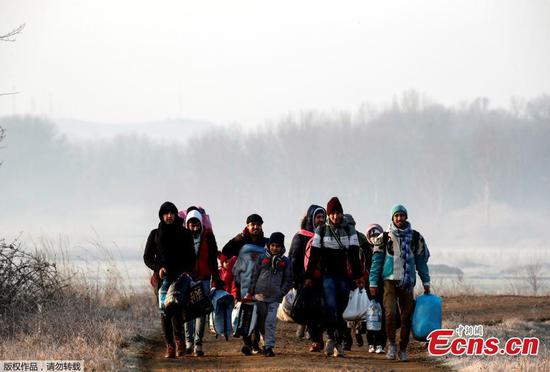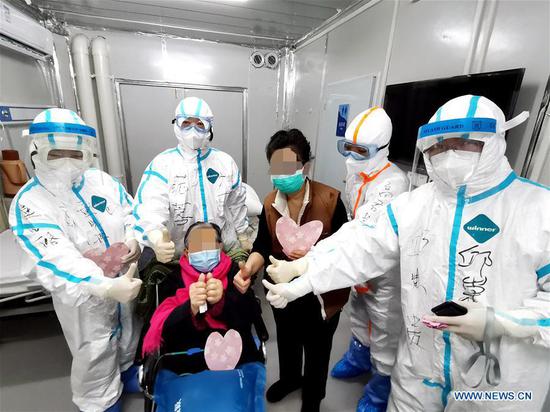China is sticking with more realistic monetary approaches to ramp up economic activities, rather than rushing to join the global wave of interest rate cuts amid the spread of novel coronavirus pneumonia.
Without further easing monetary policy, the People's Bank of China, the central bank, highlighted the priority task of containing the outbreak's impact — to accelerate business resumption — at a meeting on Wednesday, as policymakers agreed that stagnant production is a major threat to the economy.
Several hours before the PBOC meeting, the US Federal Reserve implemented an emergency rate cut of 0.5 percentage point, the largest cut since the 2008 financial crisis, to help calm financial markets and stabilize the economy as the outbreak spreads to more parts of the world.
The target range for the federal funds was slashed to 1 to 1.25 percent, as the Fed was concerned about the "coronavirus posing evolving risks to economic activity".
The Fed's latest move is believed to possibly raise prospects of a coordinated policy response by global central banks to combat a global recession, which the Organization for Economic Cooperation and Development warned on Monday could evolve into the worst downturn in the post-crisis era.
The Fed's rate cut was before its scheduled March meeting and surprised global financial markets. But it failed to help boost US stocks, which rallied on the news in early trading before quickly giving up previous gains.
Chinese financial markets responded positively to the Fed's action. The CSI 300 index, which is a tracker of major stocks listed on the Shanghai and Shenzhen exchanges, rose by 0.58 percent to 4115.05 at close on Wednesday. The Chinese yuan strengthened 0.68 percent during onshore trading to 6.9285 yuan per US dollar, the strongest since Jan 23.
The US Fed's rate cut took place as the rate of coronavirus infections outside China is accelerating, while the epidemic shows signs of easing in China. Analysts said the move may lead some other central banks to join a new round of monetary easing and global liquidity expansion.
"The interest rate cut is not a strong enough measure to contain the economic shocks of the virus" as overall monetary easing may not be efficient enough to safeguard small and medium-sized businesses, in the sectors most affected by the outbreak, said Li Xunlei, chief economist at Zhongtai Securities.
"In China, the central bank has already quickly responded to the shocks of the virus. Any subsequent moves will depend on the domestic situation and the supportive policy should be more targeted, avoiding massive monetary easing," said Wen Bin, chief economist at China Minsheng Bank.
The central bank meeting on Wednesday, chaired by PBOC Governor Yi Gang, stressed that "stabilizing expectations" was among the authority's priority tasks. In addition, monetary policy should focus on extending credit and innovating new tools, said a statement on its website.
"The prudent monetary policy should be more flexible and moderate, while keeping ample liquidity at a reasonable level and improving the macro-prudential assessment framework," it said.
Yi called for taking advantage of the 300 billion yuan ($43.3 billion) relending fund for companies providing essential supplies to contain the virus, a 500 billion yuan special relending and rediscounting fund for smaller businesses and a 350 billion yuan special credit quota for three policy banks, to accelerate the resumption of production. All of these policies were issued last month.
"Real estate should not be used as a measure to stimulate the economy in the short term," said the PBOC, warning that speculative investment in housing should be avoided.
The IMF's International Monetary and Financial Committee held a teleconference on Wednesday and issued a statement, saying "the economic and financial impact (of COVID-19) has also been felt globally, creating uncertainty and damaging near-term prospects".
"We have called upon the International Monetary Fund to use all its available financing instruments to help member countries in need," the statement said.
As the coronavirus outbreak is plunging the world economy into its worst downturn since the global financial crisis more than a decade ago, more coordinated actions from central banks worldwide are needed to prevent a global recession, and China will have more space to ease monetary policy, said Ming Ming, an analyst at CITIC Securities.










